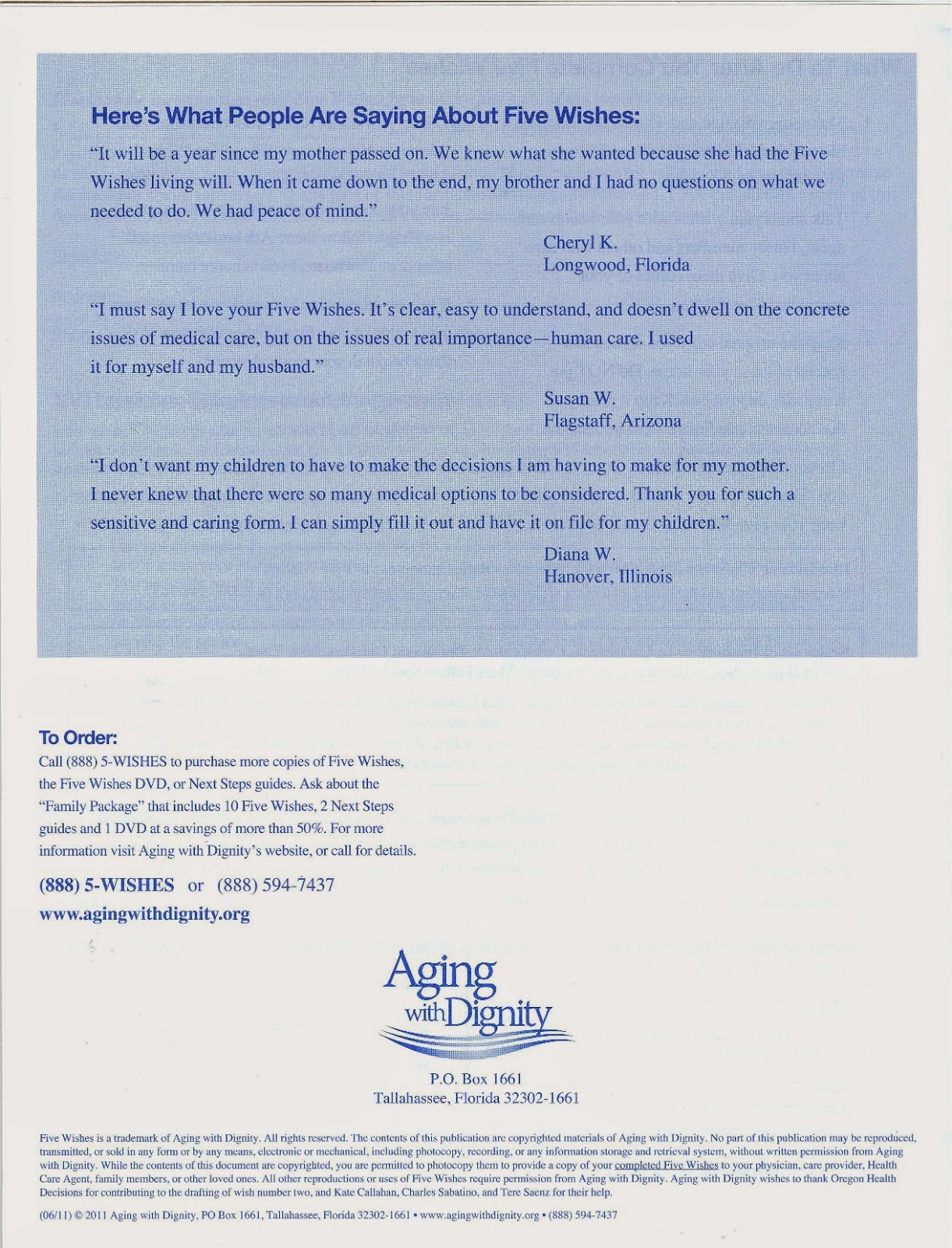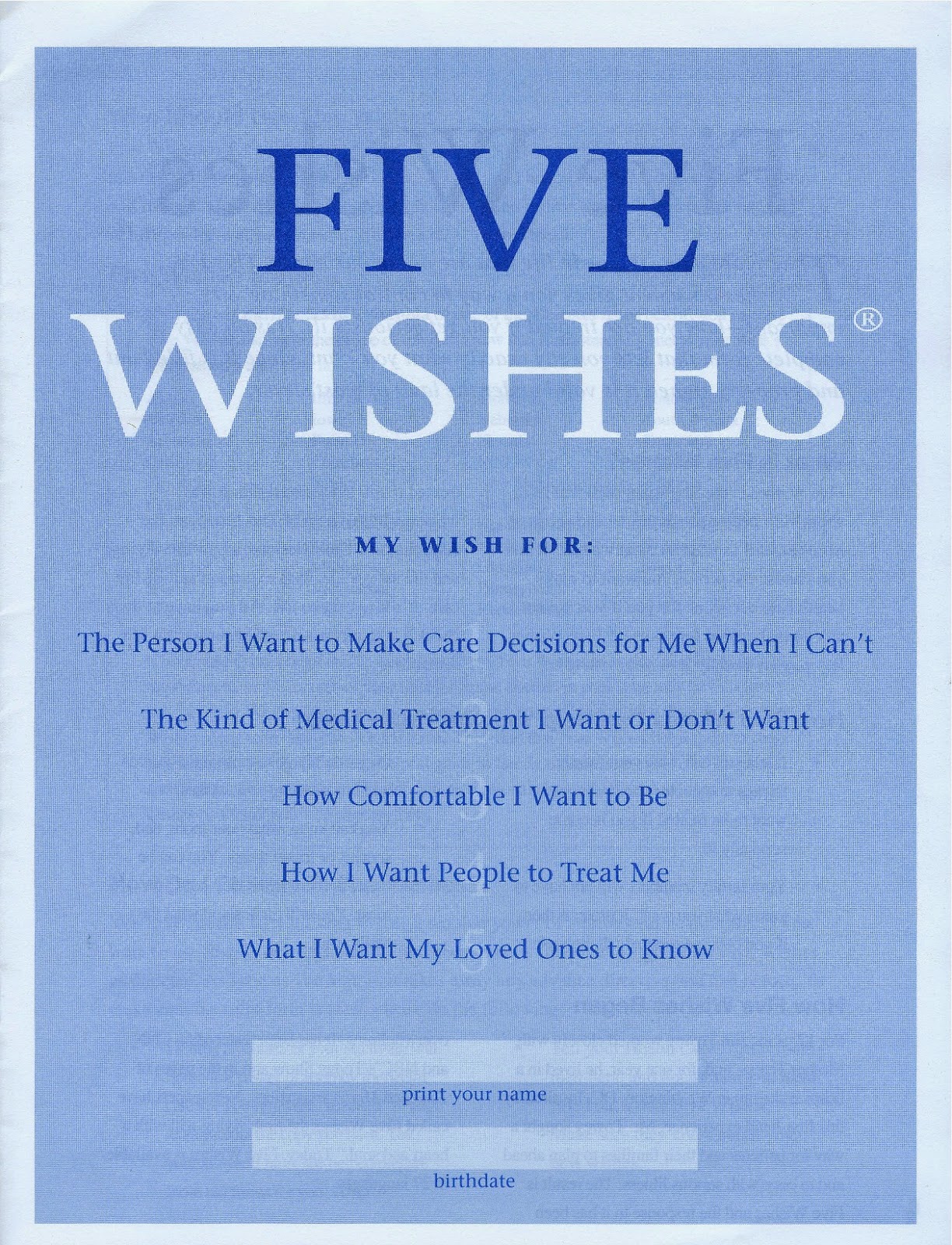
No one who’s in perfectly good health ever thinks they need to worry about ending up in the hospital tomorrow,
but things happen. I’m sure you can think of people who were fine one day and then, in a moment, it all changed. They didn’t think they needed to make known their
desires about what do if they were seriously ill and incapable of communicating, but suddenly their family had to make
those decisions when those family members were in the worst condition to do that. Terrible accidents happen. Give your loved ones a break and make as many of those
tough decisions ahead of time as possible.
Aging With Dignity offers a document you can easily fill out and make copies of so that the critical people know what you’d like to have done if you’re ever incapacitated. Give it to the people you want making those decisions, your doctor(s), your close family. You can order a copy of their publication Five Wishes, which allows you to make the following things clear:
- The person I want to make care decisions for me when I can’t
- The kind of medical treatment I want or don’t want
- How comfortable I want to be
- How I want people to treat me
- What I want my loved ones to know
I filled one of these out when I was 40. I asked three friends to help make my wishes clear if I’m ever in a coma or otherwise unable to make decisions for myself. I gave one friend the power to make those decisions. The other two will support him against anyone who wants their will done instead of mine, and they’ll help my family with final arrangements if I should die. I like to call the three of them my death panel. I then gave copies of this document to my primary care doctor, my family and my therapist.
Some might expect me to have chosen my spouse (when I had one) or a close family member to be the one who decides, but that would probably be too hard for them. The people I’ve chosen love me enough to hate the idea of me dying while at the same time prioritizing what I want, even if that means me dying. It’s a tough request to make of anyone and I’m very grateful to the friends who have agreed to it. (I actually plan on outliving them, but this is all about “just in case.”)
A few weeks ago life felt way too hard for me and I found myself gazing into Lake Michigan, wondering what drowning feels like. After a few minutes, I tried to steer my mind away from that question and managed to get as far as “But what would happen after I drowned?” That got me thinking about another document I created several years ago about how I’d like my remains handled and how I’d like to be remembered. I went home, got on my laptop and began updating my “In Case of My Death” instructions. Then I pulled out my seven-year-old copy of Five Wishes and decided to revise that, too. In this way, I took my death-focus and made it productive, and by the time I was done, my fantasies about dying were gone. (For me that’s called a good day.)
It’s a horrible thing to have someone close to you end up on life support or die, but it’s made worse when people who are emotionally devastated have to make decisions about feeding tubes and treatment options and Do Not Resuscitate orders. It’s a godsend when the person herself has spelled out what she wants ahead of time. That way the family has to spend a lot less energy agonizing over, “What would she have wanted?” as they consider organ donation and other end-of-life questions.
American hate death and we hate considering our own mortality, but this is really a favor to those who care about you. When you make clear what you want ahead of time, you give people the peace of mind of knowing they’re making the right decisions. Clearing the way for your friends and family to focus on what’s really important in the event of your death is a true gift. No matter how healthy and strong you are right now, please do it.

